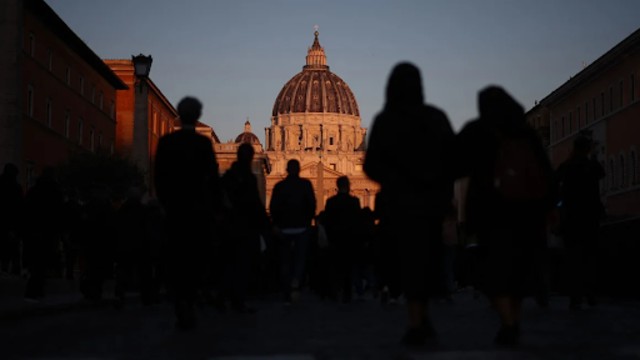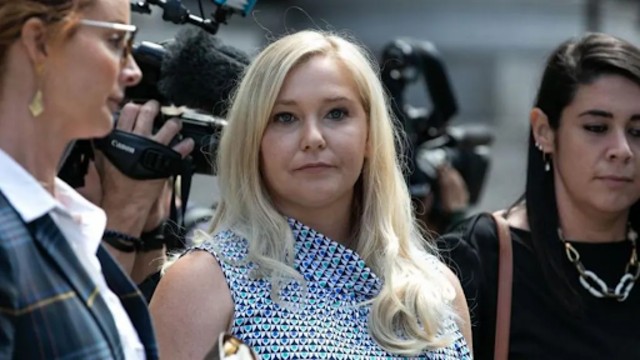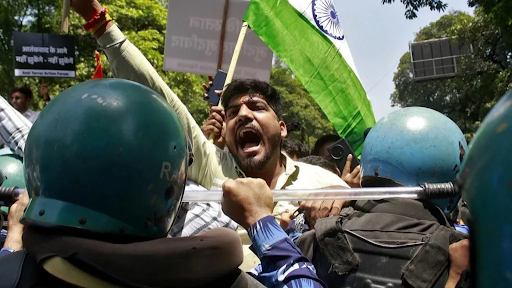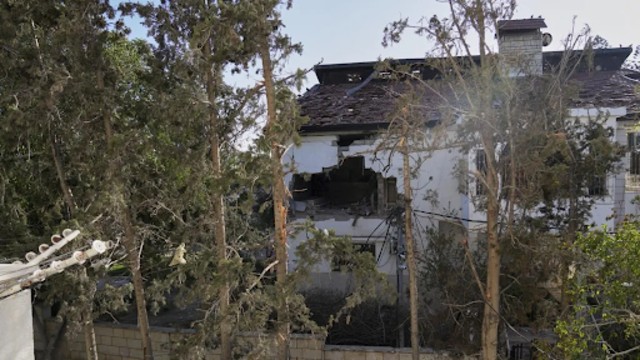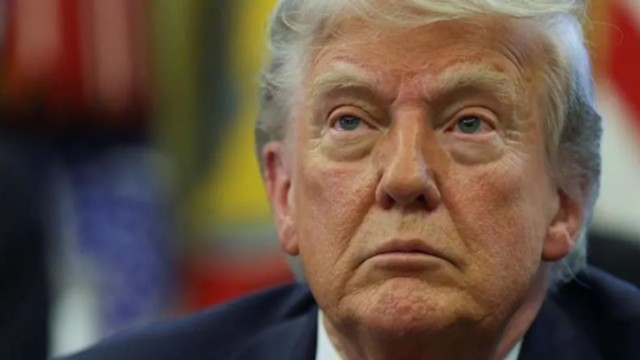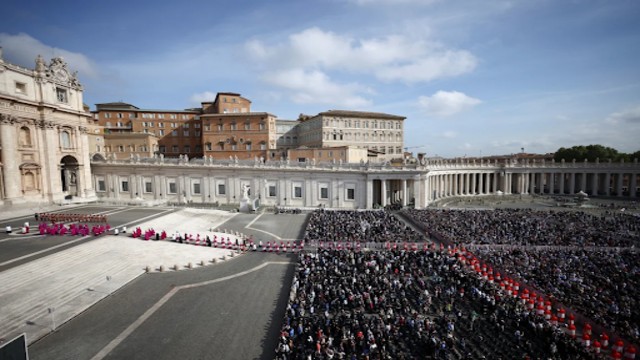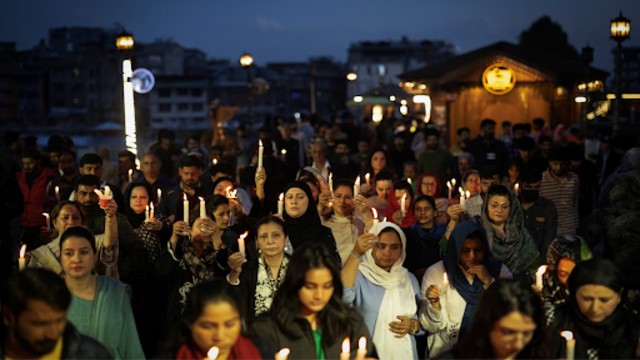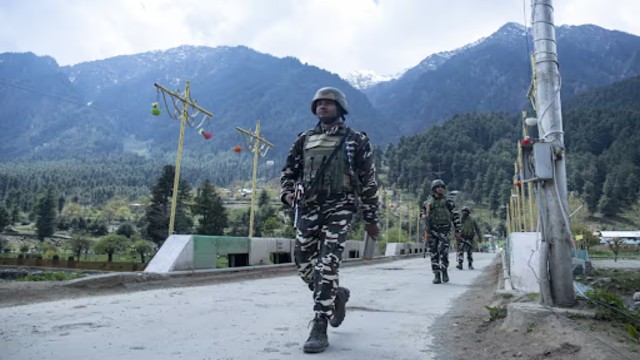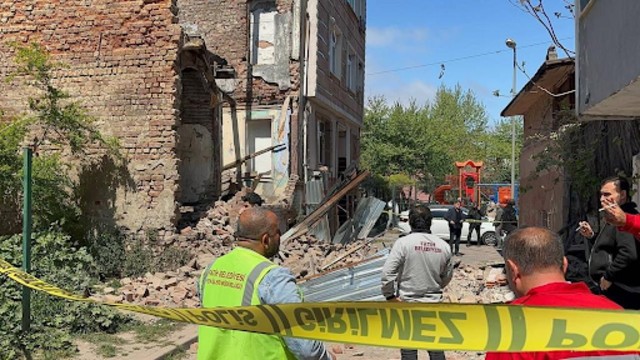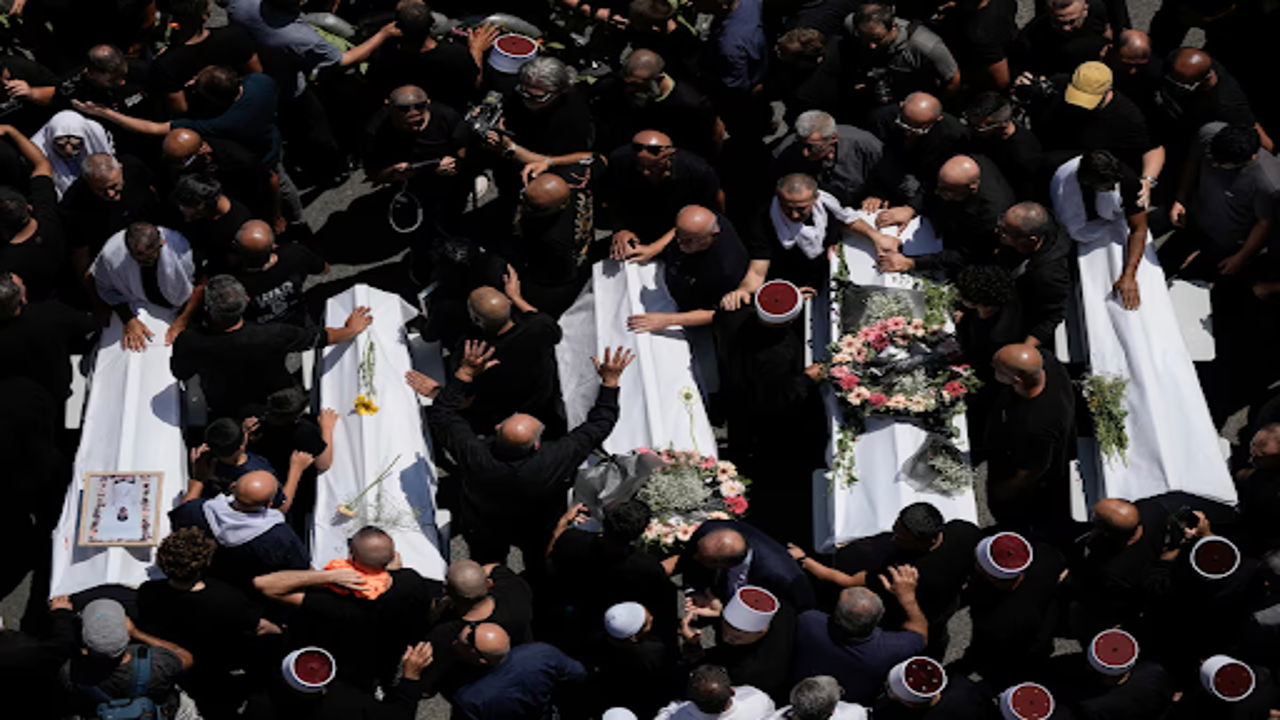
Druze mourners gather around the bodies of the 12 children and teenagers killed in a rocket attack on a soccer field in Majdal Shams, located in the Golan Heights, on July 28, 2024. The Associated Press.
On Sunday, Israel’s Defence Minister vowed to make Hezbollah pay for a deadly rocket attack that claimed the lives of 12 children in the Golan Heights. The strike, which occurred on a soccer field in Majdal Shams, has heightened tensions between Israel and the Lebanese militia.
As night fell, Lebanon braced for possible retaliation. Israeli Prime Minister Benjamin Netanyahu cut short his visit to the United States and returned to deal with the crisis. Following a tense meeting with his war cabinet, Netanyahu’s office issued a brief statement, empowering the Prime Minister and Defence Minister to decide the response to Hezbollah.
Reports suggest that Israeli jets targeted locations in southern Lebanon on Sunday, but it’s unclear if stronger measures will follow. Hezbollah appeared to be preparing for possible strikes, with reports of evacuation from potential targets and movement of Lebanese military convoys away from the southern border zone.
The escalation has affected travel as well. Lebanon’s main carrier, Middle East Airlines (MEA), postponed flights, and other international airlines canceled their services to Beirut. The U.S. State Department advised Americans to reconsider travel to Lebanon due to the volatile situation.
The tragic attack killed 12 children aged between 11 and 16 and wounded 30 others, all members of the Druze community. Druze spiritual leader Sheik Mowafaq Tarif described the day as a dark moment, emphasizing the profound impact on the Druze and northern residents.
International responses have been swift. Canada’s Foreign Affairs Minister, Mélanie Joly, condemned the attack and urged Iran and its affiliated groups to halt destabilizing actions. Hezbollah has denied responsibility for the rocket strike but admitted targeting an Israeli base in the region. They suggested the rocket might have been unintentionally fired by Israeli air defense missiles. However, Israeli officials and the White House firmly blamed Hezbollah for the attack, dismissing their denial as unconvincing.
The incident has exacerbated an already tense situation. This strike is one of the deadliest in recent months amidst ongoing cross-border attacks between Hezbollah and Israel. The current conflict, ignited in October, has seen Hezbollah launch missiles and drones into Israel in support of Hamas, which attacked southern Israel on October 7.
In response, Israel has launched significant operations in Gaza, leading to extensive casualties on both sides. The Gaza Health Ministry reports over 39,000 Palestinian deaths, while more than 450 Lebanese have died in the cross-border fire, including 384 Hezbollah members. The conflict has also led to significant displacement, with many evacuations on both sides of the border.
As tensions remain high, foreign embassies, including Canada’s, have warned their citizens to avoid traveling to Lebanon and advised those currently there to make evacuation plans. The Canadian embassy estimates around 45,000 to 50,000 Canadian citizens in Lebanon, raising concerns about a possible mass evacuation similar to the one in 2006.
Marwan Hamadeh, a Lebanese Druze politician, echoed concerns about escalating violence, reflecting on warnings from White House envoy Amos Hochstein about the risk of broader conflict if key incidents occurred.


